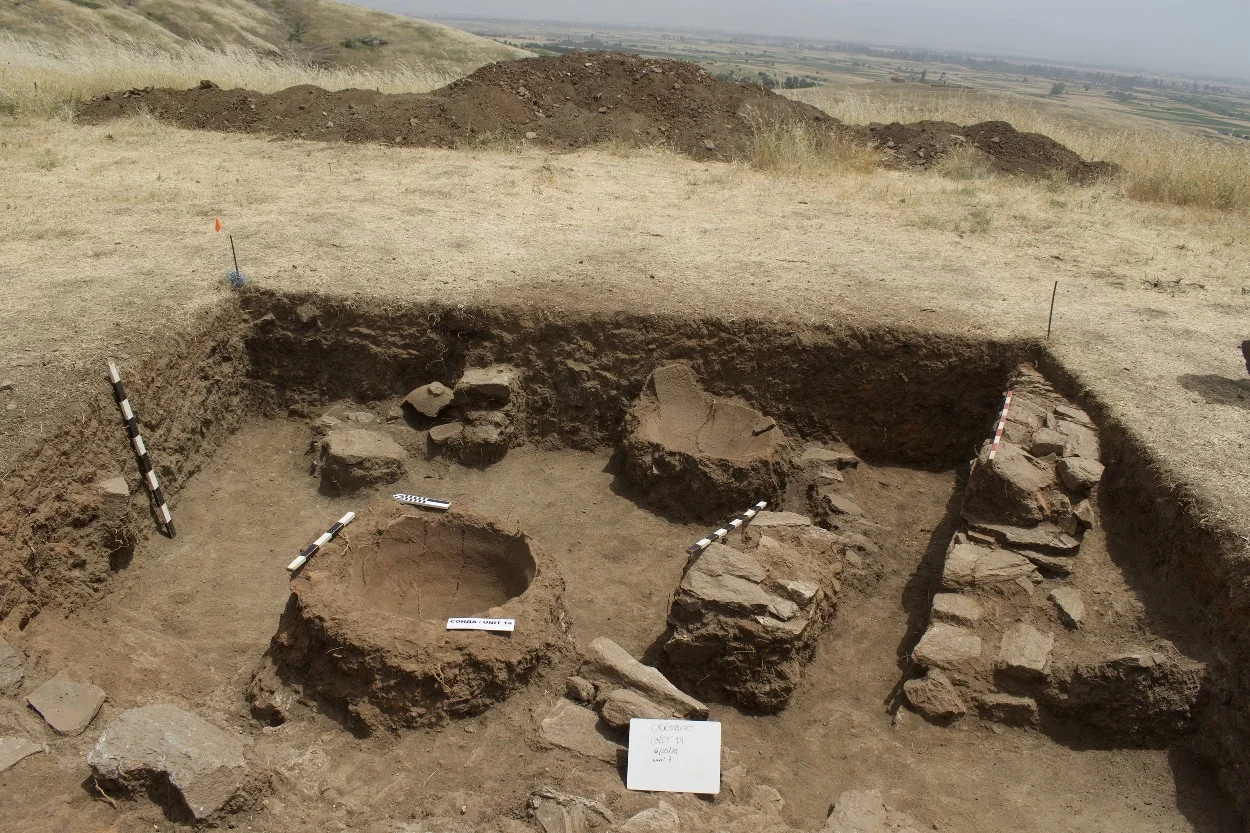Archaeologists excavating at Gradishte, an archaeological site in the Bitola Municipality of North Macedonia, believe they may have uncovered the remains of Lyncus, the lost capital city of the ancient Kingdom of Lyncestis.
Gradishte was first discovered over 15 years ago and has been the subject of ongoing excavations by a joint team of archaeologists from the Macedonia’s Institute and Museum–Bitola, and the California State Polytechnic University, Humboldt.
Archaeologists in 2023 deployed non-invasive techniques, including ground-penetrating radar and drone-mounted LiDAR, revealing an extensive urban expanse featuring an acropolis and a Macedonian-style theatre.
Initial estimates placed the city to the reign of King Philip V (221–179 BC), but the recent discovery of a coin minted between 325 and 323 BC now places the site to the reign of Alexander the Great.
The discovery of stone axes and fragments of ceramic vessels suggest that the area was inhabited as early as the Bronze Age (3300–1200 BC). According to archaeologists, this discovery sheds new light on North Macedonia’s past when the ancient Macedonian state was one of the first modern states in Europe.

Nick Angeloff, Cal Poly Humboldt Anthropology professor and archaeologist, said: “This discovery is significant. It highlights the complex networks and power structures of ancient Macedonia, especially given the city’s location along trade routes to Constantinople. It’s even possible that historical figures like Octavian and Agrippa passed through the area on their way to confront Cleopatra and Mark Antony at the Battle of Actium.”
According to Professor Angeloff, the city could be Lyncus, the lost capital of the Kingdom of Lyncestis (“land of the lynx”), an autonomous kingdom in Upper Macedonia that resisted Argead rule until Philip II’s conquest in 358 BC. It was also at Lyncus where Eurydice, queen and wife of king Amyntas III of Macedon (and grandmother of Alexander the Great) was born.
“Students, faculty, and researchers from National Institute and Museum–Bitola and Cal Poly Humboldt are working to continue uncovering the full story of this ancient city. This ongoing work promises to reveal more about the intricate networks and vibrant culture of ancient Macedonia, offering valuable insights into the development of early European states and their influence on the world,” – said the Cal Poly Humboldt official press statement.
Header Image Credit : Cal Poly Humboldt’s Cultural Resources Facility
Sources : Cal Poly Humboldt





